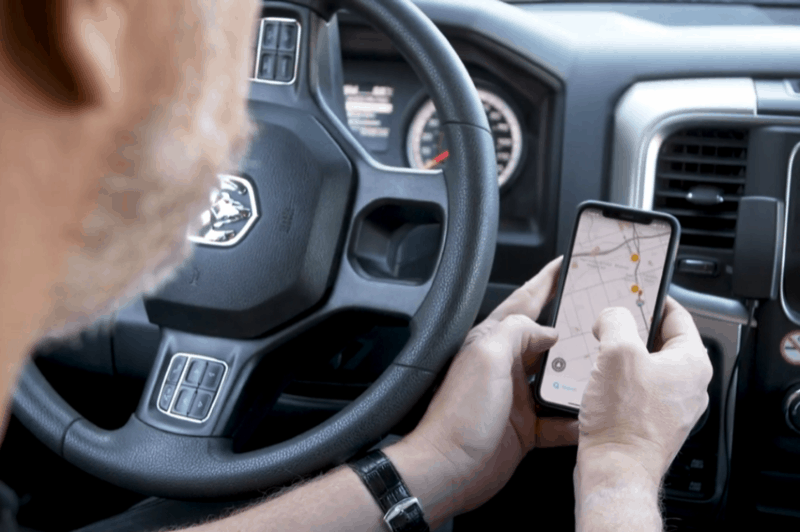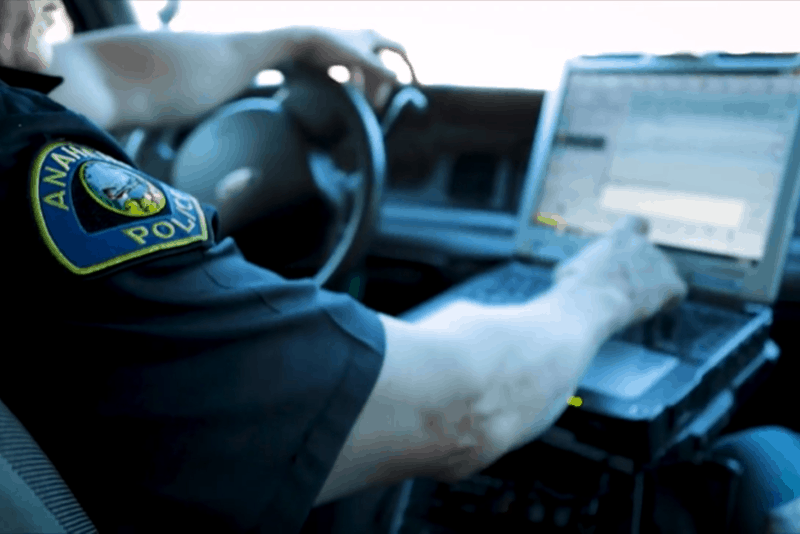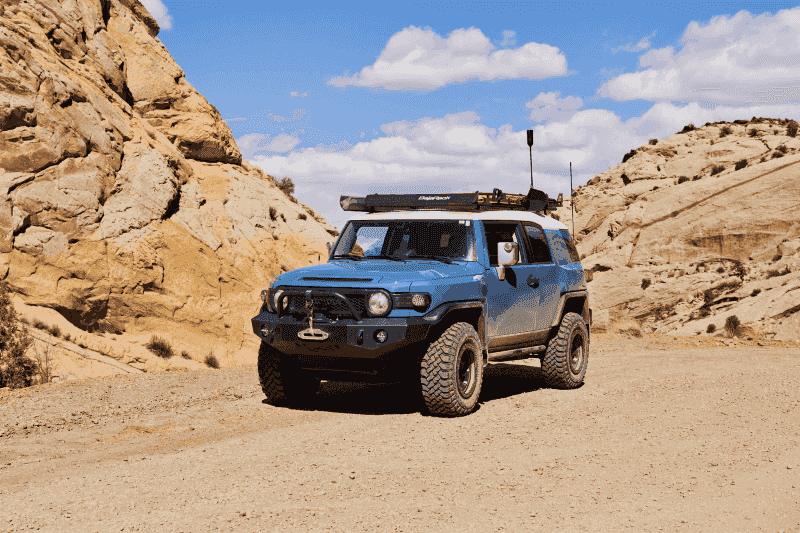5 Reasons Work Truck Fleets Need to Stay Connected on the Road
Posted on 5/6/2022 by Nicholas Jones
Safety and security on the road is all about consistent communication. Staying connected is crucial, not just for long-haul truck drivers and remote fleets who spend the most time on America’s highways, but for any long-distance drive.
For dealing with emergencies or breakdowns, enhancing your personal security, and staying in touch with business associates or with loved ones, reliable cell signal is one of the best assets you can have on your journey.
Here’s a look at five reasons truck drivers need to stay connected on the road.
1. Emergency Preparedness
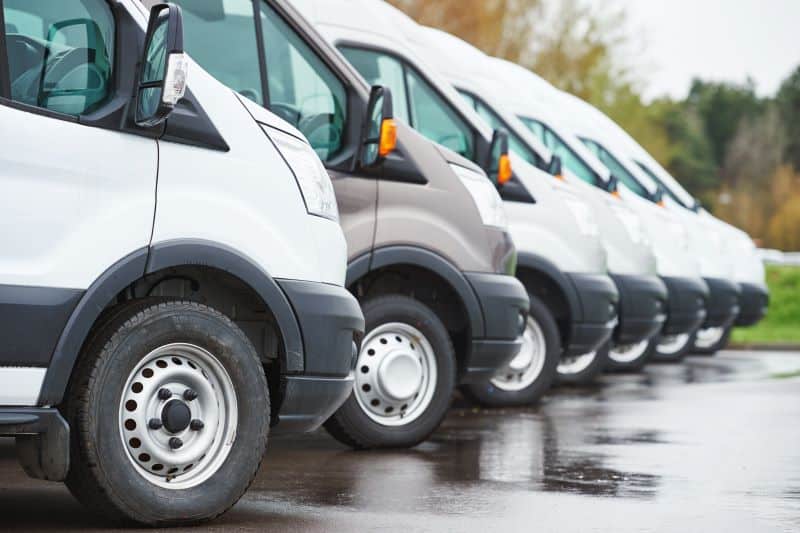
It’s important to have options when the unexpected strikes. All sorts of roadside emergencies can intervene even in best-planned journeys. Bad weather can lead to unforeseen stops, detours, or backtracking.
Accidents can be the product of anything from poor road conditions to error on the part of fellow drivers. In the event of an accident, cellular connectivity proves essential for dashcams to function. With a dashcam working as expected, drivers and fleets will have a record of the accident and insurance claims will be reduced.
When emergencies happen, almost any roadside assistance organization anywhere in the world will recommend that a fully charged cell phone should be part of your roadside emergency kit. Provided you can get a strong enough signal in your location, a mobile phone can be a communications lifeline to the local authorities or to nearby hospitals or repair shops. In the case of a smartphone, it can also provide on-time access to GPS data that can keep you from getting lost.
Just as importantly, your cell phone ties you into the Wireless Emergency Alert (WEA) network. This can be invaluable for being aware of unusual crises in your area, such as severe weather events — wildfires, floods, tornadoes — that might require you to rethink your route.
If you’ve ever experienced what it can be like to be caught off-guard by a wildfire or other natural disaster while on the road, the value of that kind of information comes clear.
2. Breakdowns and Towing
Your vehicle is bound to break down while on the road at some point. Even a well-maintained vehicle can develop hidden ailments that can make themselves known at the worst possible time in the worst possible places.
Breakdowns are a lot more common than many think. There are 69 million breakdowns annually in the U.S. alone, and a small portion of those breakdowns lead to further accidents.
Ironically, new car and truck technology has actually contributed to automotive breakdowns during the early 21st century. A record-breaking spike in the number of new vehicles among service calls was first noticed in 2016. The lower durability of sleek, low-profile tires, the energy drain on batteries from various electricity-hungry onboard systems, and the unreliability of early-warning fuel gauges all contributed to the number of breakdowns.
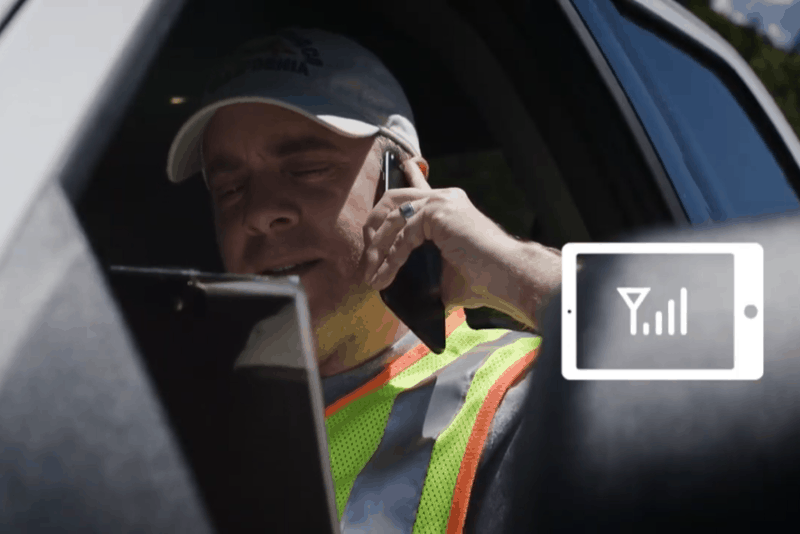
The automotive industry has been working to improve those issues since that inflection point. Even advanced, state-of-the-art vehicles can be vulnerable to breakdowns.
When you find yourself in that kind of situation, one of the best tools you can have is a reliable cell signal to get in touch with your motor club or a repair service and contact your home office and customers. This will give them up-to-date information about the interruption in your trip.
3. Personal Security
Long-haul and fleet truck drivers must be particularly aware of areas with weak cell signals. Terrain, network congestion, and distance from cell towers make it particularly difficult to get reliable connections. Loss of connection directly impacts the safety and security of all drivers, with any vehicle.
Truck drivers hauling high-value loads can be targeted by hijackers, who often know just where these dead zones are located. Cargo theft has surged during the 21st century and especially during the COVID-19 pandemic. Some states experienced a 93% increase in supply chain risk events. Cargo theft imposes billions of dollars of cost annually on the North American supply chain.
The risk of theft and being subjected to violent theft-related events like carjacking isn’t confined to people hauling cargo. Carjacking rates are rising across cities in the U.S. Security is a concern for more than just truck drivers — anyone taking long trips by road needs to have security concerns in mind.
This is another instance where having a reliable cell signal does make all the difference. One common strategy of carjackers involves “baiting” targets by setting a lookout beside a lonely stretch of road and masquerading as a stranded traveler.
With reliable cell signal, you can report these instances to local authorities — who are better placed to determine what is happening rendering aid if needed — and go on to the nearest well-lit and safe place without placing yourself at risk.
4. Real-Time Data Transmission
For fleet drivers, staying connected with freight dispatchers is essential. Dispatch provides important updates, coordinates deliveries, tracks telematics data, and verifies that drivers are on the most efficient route.
That kind of contact saves time and money and prevents mistakes or mishaps that can take trucks miles out of their way. From direct communication to enabling in-vehicle devices, a reliable cell signal makes long-haul trucking more efficient for owner-operators, drivers, and dispatchers.
Staying in touch with your business is something that applies to all travelers. Many people have grown accustomed to working remotely and checking in with their emails or voicemails even while on trips. It is the kind of mobile accessibility that the modern business world all but outright demands — the kind that allows you to at least recommend which of your associates might be best to respond to a certain problem even if you can’t do so yourself.
With reliable cell signal, it’s much easier to maintain contact and ensure that your journey doesn’t send business concerns off the proverbial rails.
5. Contact With Loved Ones
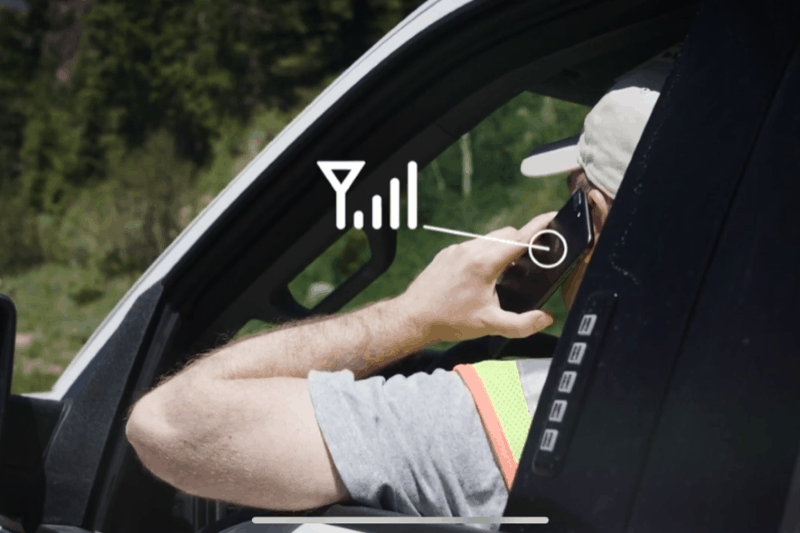
Of course, the most important priority is keeping up connectivity so you can stay in touch with friends and family. Fleet drivers spend hours and days away from their home and loved ones, which can affect job satisfaction and driver retention in the commercial fleet industry.
Having a reliable way to stay connected with family via social media, video chats, phone calls, and texts helps drivers connect with family no matter where the road takes them.
Cell Signal Boosters for Your Vehicle
Whether you’re driving a big rig or taking your family on vacation, one of the best ways to ensure access to the best possible cell signal is to use a cell phone signal booster from weBoost.
Cell signal boosters consist of three basic technical components: an external antenna that captures a signal outside a vehicle, an amplifier that then boosts that signal’s strength by up to 32 times, and at least one internal antenna that distributes the amplified signal inside the vehicle. This will mean reliable connectivity on average 85-95% of the time.
There are boosters specifically designed for connecting with remote cell towers for use in all kinds of vehicles, including cars and SUVs, RVs, overlanding/off-road vehicles, fleets, and yes, OTR trucks.
No matter the specs of your vehicle or specific needs, weBoost cell signal boosters can help you stay connected wherever your journey takes you.
Contact us today and get started on equipping your vehicle with a more reliable cell signal, even in weak-signal zones.

